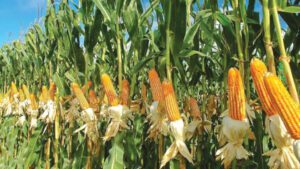Last updated on June 8, 2025
Which Month Can I Plant Maize In Nigeria: Thinking about your farm and getting the best yield? Figuring out which month you can plant maize in Nigeria is absolutely crucial for a successful harvest.
Knowing the best time to sow maize in Nigeria, or understanding the optimal maize planting season Nigeria offers in your area, makes a huge difference. From my time working with farmers and observing the land across our diverse country, I’ve seen firsthand how critical this timing is.
This guide is here to help you pinpoint the ideal planting window specifically for your farm location.



Why Does Planting Maize at the Right Time Really Matter?
And honestly, the biggest reason comes down to water. Nigeria has clear wet and dry seasons. Maize is a plant that gets really thirsty, especially when it’s flowering and when the ears are filling out with grain.
What Happens If I Plant Too Early?
If you put seeds in the ground too soon, before the reliable rains have settled in, your young maize plants won’t have enough water. They can get stressed, grow poorly, or even die. We definitely want to avoid that disappointment!
How Does Planting Time Help Use the Best Rains?
Planting when the main rainy season starts means your maize is growing during the time with the most available water. This gives it the best chance to thrive during its most important growth stages.
Does Timing Make Harvest Easier?
Yes! Good timing means your maize will likely be ready to harvest as the dry season begins. This natural drying period makes harvesting and storing your grain simpler and helps prevent issues like mold.



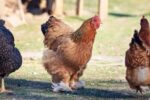
It really is about working with our climate for the best results!
What Are These “Agro-Ecological Zones” I Keep Hearing About?
And you know, Nigeria isn’t just one big farm with the same weather everywhere you go. Our country has different natural areas, each with its own typical climate. This is especially true for how much rain falls and when. These different areas are called agro-ecological zones.
Knowing your zone is like having a map to your local weather patterns. It helps you predict when the rains are usually reliable enough to start planting your maize.
Which States Are in Which Zone?
- Forest Zone: This is in the humid southern part of Nigeria. It gets long, heavy rains. Think of states like Ogun, Cross River, and parts of the Niger Delta area.
- Derived Savannah: This zone is a mix, between the southern forests and the northern savannahs. It’s a bit drier than the forest zone. You’ll find areas in states like Oyo, Ekiti, and parts of Edo here.
- Southern Guinea Savannah: A major farming area with a clear and substantial wet season, but it’s shorter than in the zones further south. Important farming states like Kaduna, Niger, and parts of Kwara fall into this zone.
- Northern Guinea Savannah: Another important farming region. The rainy season starts later here and doesn’t last as long as in the Southern Guinea Savannah. Parts of states like Kano, Katsina, and Zamfara are in this zone.
- Sudan and Sahel Savannahs: These are the driest zones in the far north. They have the shortest and sometimes unpredictable rainy seasons. States like Borno, Yobe, and Jigawa have areas in these zones.
Source: Agro Ecological Zones in Nigeria – Agriculture Nigeria – This source gives a good overview of these zones and their locations.
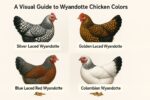



Optimal Planting Months by Region – Which month can I plant maize in Nigeria?
So, When Exactly Should I Plant Maize in My Zone? Based on the usual climate patterns in each zone, here’s a simple chart. It shows the best months to plant your maize during the main rainy season. This is a great place to start for your maize planting calendar Nigeria!
| Agro-Ecological Zone | Optimal Planting Months (Main Season) |
| Forest Zone | Mid-March to Early April |
| Derived Savannah | April |
| Southern Guinea Savannah | April to May |
| Northern Guinea Savannah | May to June |
| Sudan and Sahel Savannahs | June |
Just a quick thought from my experience: While this chart shows the main planting season, some farmers do plant later, maybe around August. This can work if their area gets enough late rain or if they use maize types that grow quickly. But for most rain-fed maize farming Nigeria relies on, planting during the early season window is usually the most reliable way to get a strong start.
Besides the Month, What Else Should I Check Before Planting?
But hey, please don’t just look at the calendar and plant your seeds! You really need to be a bit of a weather detective right there on your own farm.
Here are some really important things to check before you put those valuable maize seeds in the ground:
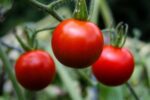

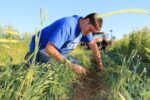
Is the Rain Really Here and Staying?
Don’t get excited by just one or two early showers! Your young maize needs steady, consistent rain to grow strong roots. Rain that comes and goes unpredictably (that’s erratic rainfall) can seriously reduce your harvest. It’s important to see if the rain is really here to stay, not just a few showers, because young maize needs steady water to grow strong. Source: effects of climate variability on maize yield in wukari local government area of taraba state – African – British Journals – This study shows how inconsistent rain impacts maize.
Is the Soil Wet Enough?
Grab some soil and feel it. Stick your finger several inches down. Does it feel consistently damp? That’s the moisture your seeds need to sprout well. Planting into dry soil, even if rain is forecast, is quite risky.
Does Temperature Affect My Maize?
Yes, it does! Maize likes warmth, ideally between 20°C and 30°C. But very hot temperatures (above 35°C) can stress the plants, especially when they are flowering. This can mean fewer grains develop on the cob. Source: Optimal Temperature Ranges for Plant Growth in Nigeria (Part 2) – Farmwella – Farmwella confirms this ideal temperature range.
Is Climate Change Messing Things Up?
This is a big factor these days, even now in early 2025. Climate change means old weather patterns aren’t always reliable guides. Sometimes rains start later, or dry spells happen unexpectedly during the wet season. Checking recent local weather forecasts is crucial for dealing with these changes. Source: Preparedness of Maize Farmers against Climate Change Risks in Saki-West Local Government Area, Oyo State, Nigeria *1OGUNJINMI, K – Research like this shows how climate change affects farmers’ preparedness.




Can I Plant Maize When It’s Not the Rainy Season? (Dry Season Maize)
And guess what? Farming doesn’t have to stop just because the main rainy season is over! You can definitely grow maize during the dry season, but there’s a key requirement: you absolutely need a reliable way to water your crop. This is often called dry season maize farming Nigeria.
When is the Best Time for Dry Season Maize?
You can generally plant dry season maize between September and April. The exact time depends on when the dry season is strongest in your area.
How Do I Water My Maize in the Dry Season?
Since there’s no rain, you must provide all the water your plants need. This means having access to a well, borehole, river, or other consistent water source. Here are some ways to get that water to your maize plants (Irrigation Methods):
- Surface Irrigation: This is like flooding the field with water or making little channels (furrows) for water to flow down rows. It’s simple to set up but uses a lot of water.
- Sprinkler Irrigation: This uses pipes and sprinklers to spray water over the field, like artificial rain.
- Drip Irrigation: This is a very efficient method! It uses a network of tubes with small holes to slowly drip water right at the base of each plant, directly to the roots. It saves water and can even help control weeds by only watering the plant area!
What Are the Good and Bad Things About Dry Season Maize?
Dry season farming can sometimes be more profitable because fewer farmers are growing maize then, which might mean higher prices. But it’s challenging because of the cost and effort of setting up and managing irrigation, the risk of water shortages if your source isn’t reliable, and sometimes more pest problems.

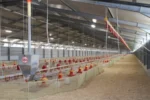

Why Should I Talk to the Local Agriculture Experts?
Look, I can share general knowledge and point you to resources, but the very best information for your specific farm comes from the experts right in your community. The agricultural extension officers working with the government in your state or local area know so much about the conditions right there.
- They know the exact local weather patterns and soil types in your community.
- They can recommend the best maize varieties proven to grow well right there.
- They can help you get your soil tested to see what nutrients it needs.
- They offer advice on dealing with pests and diseases common in your specific area.
Honestly, reaching out to them is one of the smartest things you can do for your farm. They are there to help you succeed! Think of them as your local farming coaches.
Ready to Plant? Use This Quick Checklist!
Before you head out to the field with your seeds, quickly go through this list. It can really help you get a good harvest:
- Have the steady, reliable rains definitely started in my area?
- Is the soil moist several inches deep?
- Have I checked the most recent local weather forecast for the coming weeks? (Check reliable Nigerian meteorological sources!)
- Do I know the best maize variety for my zone and the current season’s conditions?
- Have I consulted with my local agricultural extension officer recently for specific advice?
Checking these points helps make sure you’re planting at the best possible time!
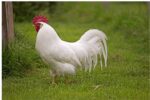



What If the Rains Stop Unexpectedly After Planting?
Because weather patterns can be a bit unpredictable sometimes (even now in early 2025), you might face unexpected dry spells during the rainy season. It happens to the best of farmers! If this occurs, having some simple ways to save water in mind can help. Things like covering the soil with mulch to keep moisture in, or even having a plan for emergency watering if you have a limited water source nearby, can make a big difference. Choosing maize varieties that can handle drier conditions, recommended by your local extension office, is also a smart way to make your farming more resilient. This helps with dealing with early dry spells in maize farming Nigeria.
Frequently Asked Questions About Planting Maize in Nigeria
Got more questions buzzing around your head about maize planting? Here are some common ones farmers ask:
When Should I Apply Fertilizer to My Maize?
Fertilizer application timing for maize is crucial! Generally, you’ll apply fertilizer in splits. A common approach is to apply some at planting and the rest later, usually around 4-6 weeks after planting, when the maize is growing rapidly. Your local agricultural extension officer can give you the most precise timing and type of fertilizer based on your soil test results and the maize variety.
How Much Water Does Maize Need During Different Growth Stages?
Maize needs consistent moisture throughout its growth, but it’s especially critical during the vegetative stage (when it’s growing leaves and getting tall) and the reproductive stage (when it’s flowering and forming ears). Water stress during flowering can severely reduce yield. Drip irrigation is great because it provides steady water directly to the roots during these key maize growth stages and water needs.
What Are Common Pests During Maize Planting Season in Nigeria?
Several pests can cause problems for young maize. Armyworms and stem borers are common culprits that attack during the planting season and early growth stages. Knowing about these common maize pests Nigeria planting season brings and how to spot them early is important for timely control. Your local extension office can provide advice on integrated pest management strategies.
Are There Different Planting Times Even Within One Zone?
Yes, sometimes! While the agro-ecological zones give us a good general idea, there can be microclimates or local variations in rainfall patterns even within a state. For example, in parts of Oyo State (Derived Savannah), the exact onset of steady rains might differ slightly from one local government area to another. This is another reason why observing your immediate farm environment and talking to local experts is so important.
How Can I Choose the Best Maize Variety for My Area?
Choosing the best maize variety for drought-prone areas in your region, or simply the best variety for your zone’s typical conditions, is key. Consider factors like maturity period, yield potential, and resistance to common pests and diseases in your area. Your local agricultural extension officer can recommend improved maize varieties that are well-suited to your specific conditions.
Putting It All Together for a Great Harvest!
So, the answer to which month can you plant maize in Nigeria isn’t a single date for everyone. It’s a decision you make based on your specific location’s agro-ecological zone and, very importantly, what the weather is actually doing right now on your farm. Understanding the optimal maize sowing dates for your area is key.

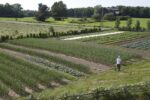
The big takeaway? Pay close attention to nature’s signs, be ready for possible challenges, and definitely talk to your local agriculture experts. Whether you’re aiming for a big harvest during the main rainy season or trying dry season farming with irrigation, timely planting is your most powerful tool for success. By watching the conditions and getting local help, you’re really setting yourself up for the best possible maize yield and making the most of the maize planting season Nigeria offers.
What’s the hardest part about deciding when to plant maize on your farm? Or maybe you have a great local tip that works for you? Share your thoughts below! Let’s help each other grow better crops!
